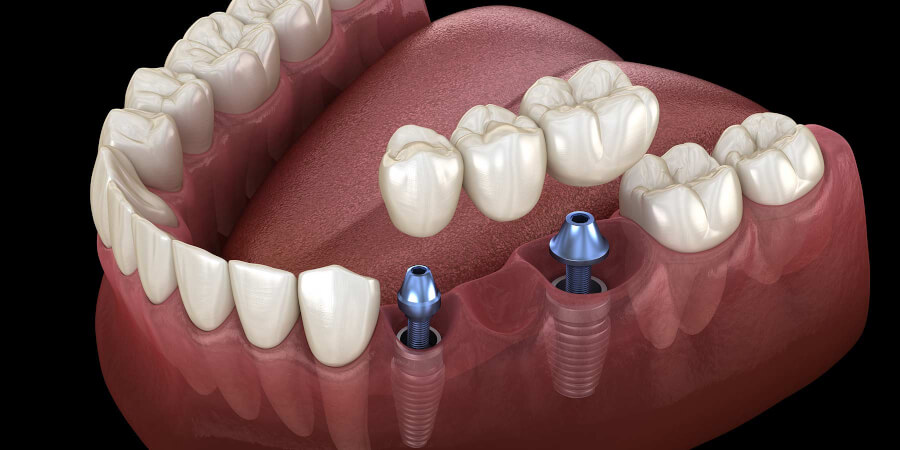Personalized medicine, also known as precision medicine, is an emerging approach to healthcare that customizes prevention, diagnosis, and treatment to match each person’s unique genetic makeup, environment, and lifestyle. In today’s world, it’s becoming increasingly clear that one-size-fits-all medicine is suboptimal. People respond differently to medications and treatments based on their genetic variations, health history, and other factors that are unique to each individual. Personalized medicine seeks to change that through custom-tailored healthcare.
Here are several key ways in which personalized medicine improves patient care:
1. More Accurate Diagnoses
Doctors employing personalized medicine can make more timely and accurate diagnoses by comparing a patient’s symptoms and test results with their unique biological and genetic characteristics. Many diseases present with overlapping symptoms that can make narrowing down the specific condition difficult. However, a detailed analysis of a patient’s genomic data, biomarker levels, and other personalized information can allow for earlier and more definitive diagnoses.
This ensures patients get on the right treatment path sooner, rather than enduring a lengthy process of trial and error. More accurate initial diagnoses prevent patients from receiving incorrect treatments that could exacerbate their illness. The ability to use a patient’s personalized data for differential diagnosis is a key advantage of personalized medicine.
2. Safer Drug Prescriptions
A major component of personalized medicine is pharmacogenomics, which involves tailoring drug prescriptions according to the patient’s genetic profile. People can have widely different responses to the same medication due to genetic differences affecting how their bodies metabolize and react to drugs. Using genomic data, doctors can better predict potential side effects or adverse events and select the safest medication regimen.
A custom compounding pharmacy plays a crucial role in this process, preparing medications specifically tailored to an individual’s unique genetic and health profile. This reduces the risk of dangerous drug reactions and improves overall health outcomes.
3. More Effective Disease Prevention
Personalized medicine allows for more effective disease prevention by shifting the focus in healthcare from reaction to prevention. Through analysis of a patient’s unique genetic makeup, lifestyle factors, and family history, doctors can better predict that individual’s risk for certain diseases. This enables them to recommend targeted screening tests at the most appropriate times based on the patient’s risk profile.
The proactive and personalized approach of analyzing a patient’s specific risk factors and taking precise preventative actions allows doctors to intervene at the most crucial junctures. This helps patients avoid diseases altogether or catch them at the earliest, most treatable stages. Preventative and proactive medicine focused on the individual can help patients live significantly longer, healthier lives free of illness.
4. Improved Medical Device Compatibility
Personalized medicine can also improve the compatibility and performance of implanted medical devices like pacemakers, stents, or prosthetics. A variety of individual factors affect how well a device integrates and functions within the body, including a patient’s size, anatomy, physiology, and specific health conditions.
By carefully considering each patient’s unique characteristics, medical devices can be better customized to work optimally for that individual. For example, prosthetic limbs can be 3D printed to perfectly match a patient’s size and anatomy based on MRI scans of their body. Devices tailored to an individual through personalized approaches are less likely to malfunction or cause complications. They integrate better and last longer than one-size-fits-all devices.
5. Advancement of Data-Driven Healthcare
Widespread implementation of personalized medicine promotes more data-driven, evidence-based healthcare overall. As more molecular-level health data is gathered, analyzed, and applied to patient care, medicine becomes more targeted and effective for everyone. Recognizing the value of molecular, genetic, and lifestyle data motivates further research and innovation.
For example, identifying genetic markers that predict disease risk or drug response can lead to new screening tests and targeted therapies. As healthcare leverages more precise data, medicine progresses as an increasingly personalized science. This ultimately benefits all patients through a healthcare system driven by advanced analytics and individual biological data.
6. Reduced Healthcare Costs
The more precise, personalized approach of this emerging medical model can help reduce overall healthcare costs. Preventing diseases before they occur eliminates the need for expensive treatments down the road. More accurate initial diagnoses also save money by avoiding costly tests and procedures.
Additionally, pharmacogenomics curbs excessive spending on ineffective medications by identifying the right drug therapy the first time. Altogether, personalized medicine’s focus on prevention, targeted screening, and genetic-based precision medicine leads to significant cost savings for the healthcare system as well.
7. Faster Recovery Times
Personalized medicine can enable faster recovery times for patients undergoing treatments or procedures. By optimizing treatments based on an individual’s molecular profile, patients are likely to respond better and experience fewer complications. This allows them to recover more quickly.
For example, pharmacogenetic testing helps ensure patients receive drug therapies compatible with their genetics. This prevents adverse reactions that could delay recovery. Tailored surgical approaches based on a patient’s anatomy enable less invasive procedures. Following treatments, providers can use biomarkers and genomics to monitor an individual’s recovery at the molecular level in real-time.
8. More Participation and Engagement in Health
Personalized medicine also empowers patients to take a more active role in managing their health. By understanding their genetic risks, biomarkers, and the molecular underpinnings of disease, patients can better modify lifestyle habits to prevent illness. For example, patients found to be at high genetic risk for diabetes can engage in early screening and make dietary changes to reduce risk.
Patients can also monitor health metrics at home through wearable technology to detect any concerning changes needing clinical intervention based on their risks. Access to personalized health data facilitates shared decision-making between providers and patients. This model incentivizes individuals to make educated choices that optimize their quality of life and outcomes.
Conclusion
Personalized medicine is a transformative new approach to healthcare that considers each person’s unique characteristics when determining the best disease treatment and prevention methods for that individual. The key benefits of personalized medicine include improved patient outcomes, reduced adverse drug reactions, and more cost-effective care.
Personalized medicine will become more widely available as technology develops, especially in the fields of genomics and molecular biology. This discipline promises to provide faster diagnosis, more efficient therapies, and overall better patient care in the future.











